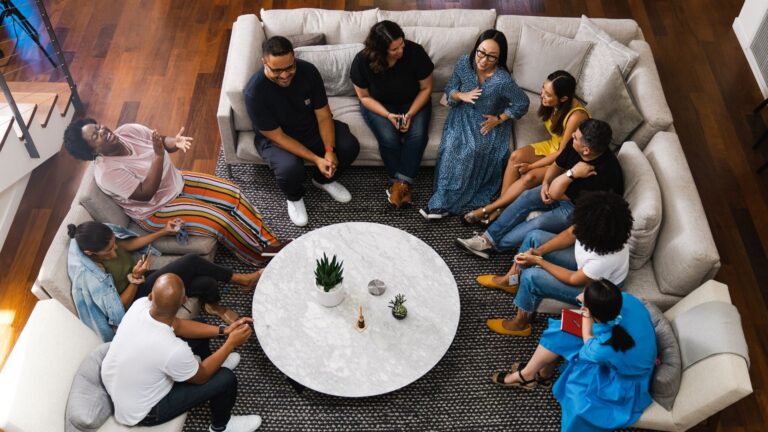Understanding Dual Diagnosis: Why It Matters
Dual Diagnosis Treatment Center Ohio? Struggling with addiction is tough. But when you add mental health issues on top of that? It can feel impossible. That’s where dual diagnosis treatment centers Ohio come in. They don’t just treat addiction; they address the underlying mental health conditions fueling it.
Many people battling addiction also face depression, anxiety, PTSD, or bipolar disorder. If you only treat one issue and ignore the other, relapse is almost guaranteed. The best dual diagnosis treatment centers Ohio tackle both, ensuring a long-term path to recovery.

What Is a Dual Diagnosis Treatment Center?
A dual diagnosis treatment center specializes in treating people who have both a substance use disorder and a mental health disorder. These centers offer integrated care, meaning professionals from both fields work together to create a plan tailored to your needs. This is way more effective than treating each problem separately.
Why Traditional Rehab Centers Fall Short
Traditional rehab focuses mainly on addiction. They get you sober but don’t address why you started using in the first place. If your anxiety, depression, or trauma remains untreated, your chances of relapse skyrocket. That’s why dual diagnosis treatment centers Ohio are essential for lasting change.
How to Find the Best dual diagnosis treatment centers Ohio
With so many options out there, how do you pick the right center? Let’s break it down.
1. Look for a Comprehensive Treatment Approach
The best dual diagnosis treatment centers Ohio offer:
- Medical detox (if needed)
- Therapy for both addiction and mental health
- Medication management for psychiatric conditions
- Group support and peer counseling
- Holistic therapies like yoga, meditation, and fitness programs
If a center only focuses on getting you sober but ignores mental health, it’s not truly dual diagnosis care.
2. Find a Center with Licensed Mental Health Professionals
You need licensed therapists, psychologists, and psychiatrists who specialize in dual diagnosis. If a center doesn’t have mental health experts on staff, it’s not equipped to handle both conditions properly.
3. Check Their Success Rate and Reviews
What do past patients say? Are people actually staying sober and improving their mental health? Look for testimonials and success stories to get a feel for their effectiveness.
4. Consider the Levels of Care Available
Some people need inpatient treatment, while others do well with outpatient programs. The best centers offer:
- Residential treatment for full-time care
- Inpatient programs (See The Ultimate Guide to Inpatient Programs)
- Outpatient care for ongoing support
- Aftercare and sober living options
Key Therapies Offered in Dual Diagnosis Treatment
Addiction Therapy: Addressing the Root Cause
Effective dual diagnosis care uses a mix of therapy methods. This includes Cognitive Behavioral Therapy (CBT), Dialectical Behavior Therapy (DBT), and trauma therapy. These therapies help you rewire negative thought patterns and develop healthier coping mechanisms. Learn more about the power of therapy in Addiction Therapy.
Medication-Assisted Treatment (MAT)
For those with severe addiction or mental health disorders, medication may be necessary. MAT combines FDA-approved meds with therapy to reduce cravings and stabilize mood disorders.

12-Step Support and AA Homegroups
Many people in dual diagnosis treatment find healing through 12-step programs like Alcoholics Anonymous (AA). A strong AA Homegroup provides accountability and community, essential for long-term sobriety. Read more in The Power of an AA Homegroup.
The Role of Family in Dual Diagnosis Recovery
Addiction and mental illness don’t just affect the person struggling—they impact the entire family. That’s why the best dual diagnosis treatment centers Ohio offer family therapy. Loved ones need education on addiction, mental health, and how to support recovery without enabling.
What About Court-Ordered Treatment? Understanding Casey’s Law
In some cases, families may need to step in legally to get their loved one help. Ohio has Casey’s Law, which allows family members to petition for court-ordered addiction treatment. This can be life-saving for those in denial about their condition. Read more in Understanding Casey’s Law in Ohio.
Detox: The First Step to Recovery
Before diving into dual diagnosis treatment, many people need detox. This clears drugs or alcohol from the body and stabilizes you for the next phase of care. A medically supervised detox ensures safety, especially if withdrawal symptoms are severe. Find out more in Detox from Alcohol.
Can You Really Recover in Just Two Weeks?
Some rehab programs promise transformation in a short period. But is two weeks enough? While short-term programs can help, real recovery requires ongoing care. See what’s possible in Can You Really Transform Your Life in Just 2 Week Rehab?.
Finding the Right Dual Diagnosis Treatment for You
Choosing the right dual diagnosis treatment center in Ohio can feel overwhelming, but here’s a simple checklist:
Do they treat both addiction and mental health?
Do they offer evidence-based therapy?
Are licensed professionals on staff?
Do they provide aftercare support?
Do they have positive reviews and testimonials?
If the answer is “yes” to these questions, you’re on the right track.
TRIVIA TIME: Did You Know?
About 9.2 million adults in the U.S. have a dual diagnosis. That means they struggle with both mental health and substance use disorders. The scary part? Most people don’t get the right treatment. That’s why finding a specialized dual diagnosis treatment center in Ohio is critical.

FAQs About Dual Diagnosis Treatment Center Ohio
1. How long does dual diagnosis treatment last?
It depends on the person. Some need 30 days, while others require 90 days or more. The key is to stay in treatment until both the addiction and mental health disorder are stabilized.
2. Can I get dual diagnosis treatment in an outpatient setting?
Yes! While inpatient care is best for severe cases, many people succeed in outpatient programs with the right support.
3. Does insurance cover dual diagnosis treatment?
Most insurance plans cover at least part of the cost. It’s best to check with your provider or contact a treatment center like Ridgeline Recovery for guidance.
4. What happens after treatment?
Aftercare is crucial. This may include sober living homes, 12-step meetings, therapy, and support groups to maintain long-term sobriety.
Start Your Journey Today
Recovery is possible. The key is finding the right support system and treatment plan tailored to your needs. If you or a loved one is struggling, don’t wait. Contact us today and take the first step toward healing.
This guide gives you everything you need to find the best dual diagnosis treatment centers Ohio. Now, it’s time to take action. Recovery starts with a decision—make yours today.







